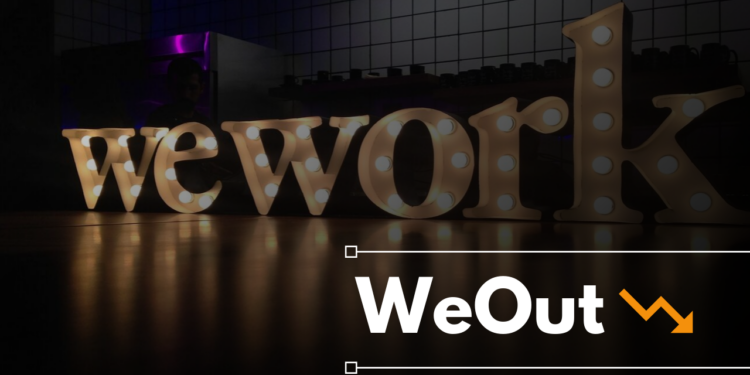- We Co., WeWork’s parent company, has postponed the company’s initial public offering.
- The news comes after WeWork lowered its valuation and made some changes to its corporate governance in the hopes of assuaging investors’ doubts.
- SoftBank has reportedly asked WeWork to postpone its IPO until at least next year, 2020.
The Wall Street Journal was first to report (paywall) that We Co., WeWork’s parent company, has postponed its initial public offering until at least mid-October.
A little over a month ago, the coworking giant published its S-1, which raised concerns about the company’s valuation and its corporate governance. The company was expected to start its roadshow as early as Monday and make its trading debut sometime next week.
These plans have been shelved after the company and its Chief Executive, Adam Neumann, failed to convince investors about the company’s potential. This even after We Co. slashed its valuation from $47 billion to below $20 billion.
It has also been reported that Mr. Neumann traveled to meet with Masayoshi Son, chairman and CEO of SoftBank Group. According to reports, SoftBank asked WeWork to postpone its IPO until at least next year. Still, should the company go public, the Japanese conglomerate has stated that it would buy at least $750 million worth of WeWork’s shares.
“SoftBank’s planned investment was expected to help shore up demand for the offering by limiting the supply of shares to be sold to outside investors and signaling the Japanese technology conglomerate’s continued support of the company, but apparently that didn’t do the trick.”
Postponing the IPO would be the better option for SoftBank, especially considering that if WeWork goes public at a much lower valuation than that established after SoftBank invested $2 billion earlier this year, it could harm SoftBank’s ability to raise funds for its Second Vision Fund.
In fact, the Japanese conglomerate is already facing challenges as two main backers of the Vision Fund, Saudi Arabia’s Public Investment Fund and Abu Dhabi’s Mubadala Investment Co., reconsider how much to invest in the new Vision Fund.
Saudi Arabia’s Public Investment Fund and abu Dhabi’s Mubadala Investment Co. have previously raised concerns about Masayoshi Son’s control over investments and his ability to overrule executive decisions. Experts believe this is what led SoftBank to slash its investment in WeWork earlier this year from $16 billion to $2 billion.
Should WeWork call off the IPO until next year, it would be closing its door to a $6 billion loan, which was based on WeWork’s ability to raise at least $3 billion in its IPO.
Beyond Numbers
Though WeWork’s sky-high valuation combined with its steep losses — almost $2 billion last year alone — have cooled investors, there are other issues that have raised red flags for investors; mainly, Mr. Neumann’s control of the company and his voting rights.
According to the Wall Street Journal, “the company had spelled out a series of governance changes, including adding a lead independent director and ratcheting back the potency of Mr. Neumann’s supervoting rights.”
WeWork was also criticized for not having any women in its board and for the statement that Mr. Neumann’s wife, Rebekah, would be able to choose Mr. Neumann’s successor should he die or become debilitated.
External factors have also contributed to skepticism about WeWork’s potential performance in the public markets. For example, Uber Technologies Inc. and Lyft Inc. have struggled in the public market as investors question their lack of profitability and their deep losses (a similar case to WeWork). Most recently, however, the Wall Street Journal reported that SmileDirectClub Inc. had a disappointing debut with a 28% fall on its first day of trading, making it “the year’s worst stock-market debut for a U.S. company valued at more than $1 billion”.
It is no surprise then that IPO investors have little to no confidence in the potential performance of companies that have been backed by private investment that have pushed valuations to a new high.
The coworking giant is also hoping that its current quarter results will get investors more excited about its prospects, the Wall Street Journal reported.
WeWork has heavily relied on investment in order to power and sustain its aggressive growth. If it postpones its IPO until next year, it will have to find other funding sources in order to stay afloat.

















